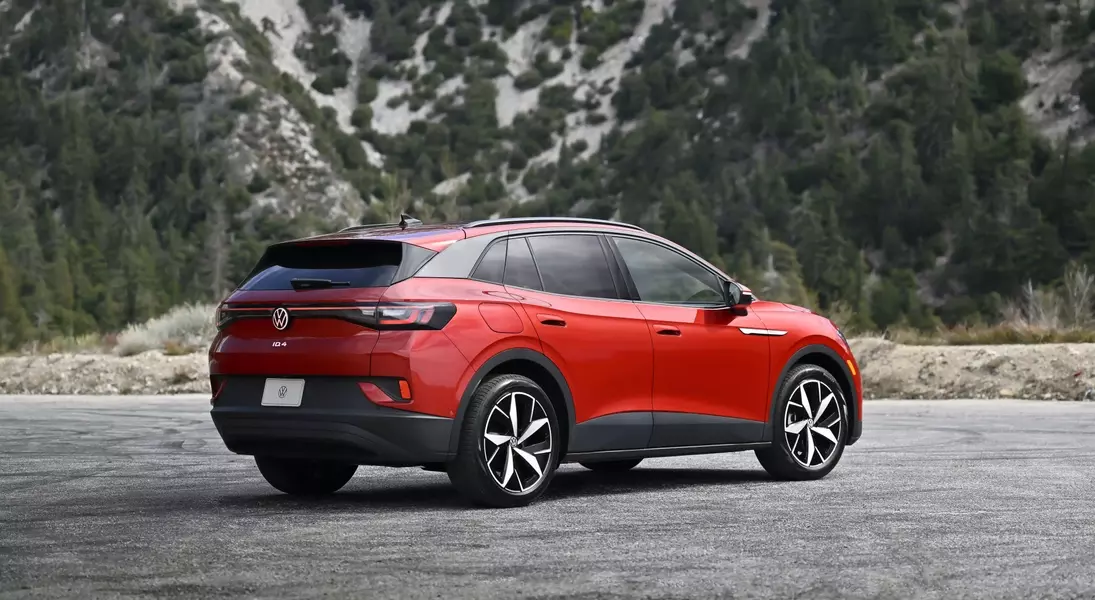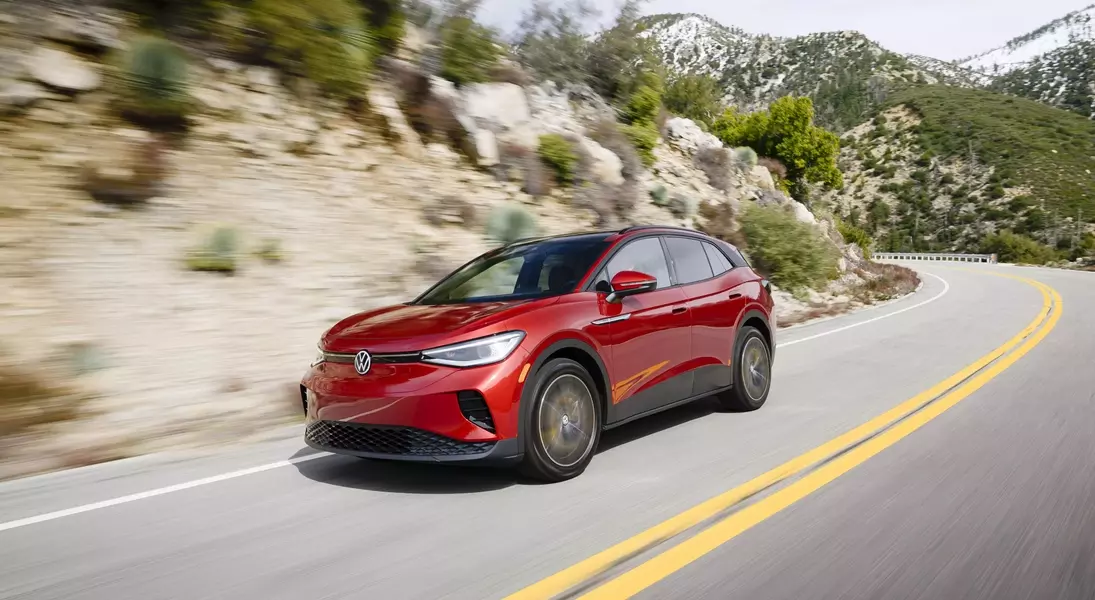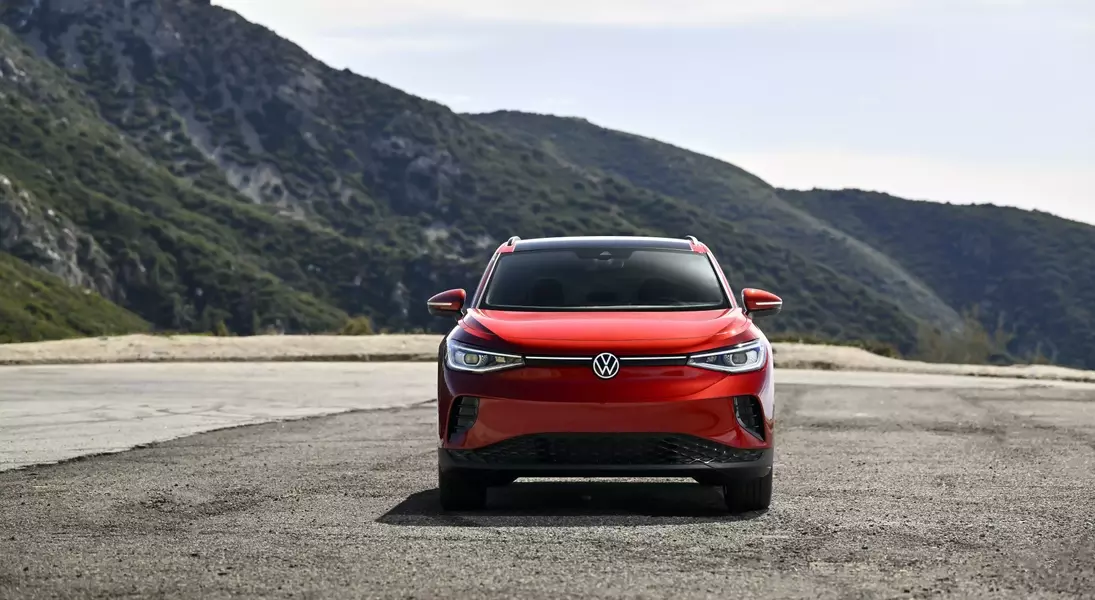




Volkswagen is set to overhaul its electric vehicle naming convention, moving away from numerical designations in favor of established model names. This strategic shift, confirmed at the IAA Mobility Show in Munich, will see the ID.4, a key mass-market electric crossover, potentially rebranded as the ID.Tiguan by 2027. This decision reflects Volkswagen's ambition to tap into existing consumer familiarity with its successful gasoline models, thereby strengthening its EV brand identity and market presence. The change comes at a crucial time for the ID.4, which has faced challenges including sales declines, price increases, and production adjustments in the U.S. market.
The current ID.4 represents Volkswagen's primary mass-market electric offering in the United States. While models like the ID.Buzz possess a unique retro appeal, their niche market position and higher price points prevent them from achieving significant sales volume. Consequently, the ID.4's broad consumer acceptance is vital for Volkswagen's electric mobility ambitions. The anticipated redesign of the ID.4, projected for 2026 and likely launching as a 2027 model, is expected to coincide with this significant name change.
Volkswagen's rationale behind this rebranding strategy is clear: to capitalize on the strong brand recognition of its conventional gasoline-powered vehicles. By adopting names such as ID.Polo for the ID.2all concept and ID.Cross for a new electric SUV concept (both slated for European launch in 2026), the automaker aims to provide consumers with readily understandable reference points. This approach seeks to simplify the transition for car buyers, allowing them to associate new electric models with existing, successful gasoline counterparts, rather than navigating a complex, number-based hierarchy exclusive to the EV lineup.
The potential rebranding of the ID.4 to ID.Tiguan is particularly sensible given the Tiguan's impressive sales performance. In 2024, the Tiguan emerged as Volkswagen's top-selling model in the U.S., significantly outperforming all of its sedans and hatchbacks combined. When questioned about this possibility, Volkswagen CEO Thomas Schäfer offered a cautious yet suggestive response, stating \"potentially.\" This indicates a strong inclination towards leveraging the Tiguan's market success for the electric crossover.
Looking ahead, the redesigned ID.4, regardless of its eventual name, is poised to mark a substantial improvement over the current iteration. Schäfer hinted at a \"huge step up,\" promising a refreshed design language and an updated interior. These enhancements are expected to draw the electric vehicle aesthetically closer to the gasoline-powered Tiguan, while still utilizing a dedicated EV architecture. The MEB+ platform, an evolution of the existing MEB platform used by the ID.4, is expected to deliver increased battery energy density and improved motor efficiency, contributing to a more competitive and appealing electric vehicle.
The need for an updated ID.4 is underscored by its recent performance. Since its introduction as a 2021 model, the ID.4 has undergone some updates, but its price has incrementally risen, diminishing its initial value proposition. For the 2025 model year, a notable price increase of $5,090 effectively occurred after Volkswagen restarted production exclusively for versions equipped with the larger 82-kilowatt-hour battery pack, following a recall-induced suspension. Although cheaper 62-kWh models were promised to return, they remain absent from the online configurator. Furthermore, U.S. ID.4 sales experienced a steep 65% decline in the second quarter, compounded by the discontinuation of the $7,500 federal EV tax credit. In response to these challenges, Volkswagen reportedly plans to temporarily halt ID.4 production at its Chattanooga, Tennessee, plant in October, impacting approximately 160 workers.
Volkswagen's strategic decision to rename its ID.4 to ID.Tiguan for the 2027 model year signifies a pivotal shift in its electric vehicle marketing and product strategy. By aligning its electric models with established and popular gasoline car names, the company aims to enhance consumer familiarity and accelerate the adoption of its EV lineup. This move is particularly crucial for the ID.4, which faces increasing market pressures and the need for a compelling redesign to boost its appeal and sales performance in a competitive electric vehicle landscape.
